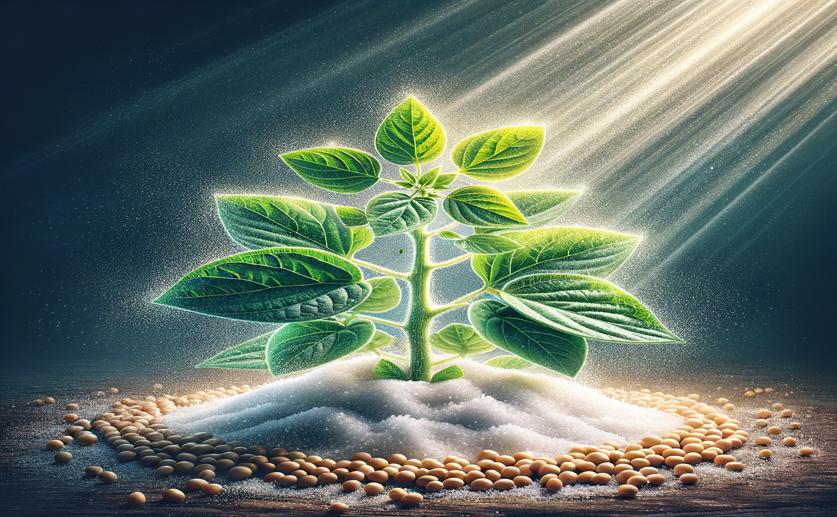
How GABA Boosts Soybean Tolerance to Salt Stress
Jenn Hoskins
7th May, 2024

Image Source: Natural Science News, 2024
Key Findings
- Study from Changchun Normal University found GABA helps soybeans grow better in salty soil
- GABA-treated soybeans had higher growth rates and managed water and ions more effectively
- These findings could lead to more resilient crops in increasingly saline agricultural lands
AgricultureBiochemPlant Science
References
Main Study
1) Gamma-aminobutyric acid (GABA) improves salinity stress tolerance in soybean seedlings by modulating their mineral nutrition, osmolyte contents, and ascorbate-glutathione cycle
Published 6th May, 2024
https://doi.org/10.1186/s12870-024-05023-6
Related Studies
2) Mechanisms of salinity tolerance.
3) Physiological Adaptation to Water Salinity in Six Wild Halophytes Suitable for Mediterranean Agriculture.
4) Mechanisms of Plant Responses and Adaptation to Soil Salinity.



 19th April, 2024 | Jim Crocker
19th April, 2024 | Jim Crocker